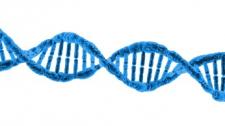Myriad Genetics Refuses To Accept That People Have A Right To Access Their Own DNA Sequences
By Glyn Moody,
Tech Dirt
| 06. 13. 2016
One of the biggest victories on the patent front was when the US Supreme Court finally ruled that naturally-occurring DNA cannot be patented. The company involved in this case, Myriad Genetics, didn't give up at this point, but tried to claim that despite this ruling, its patents on genetic testing were still valid. Fortunately, the courts disagreed, and struck down those patents too.
However, as we noted at the time, there's another issue that remains unresolved, which concerns the huge database of DNA that Myriad Genetics has built up over years of sequencing the BRCA1 and BRCA2 genes that have variants linked to cancer. Because of Myriad's unwillingness to provide that important data to the people whose DNA was sequenced, the American Civil Liberties Union (ACLU) has decided to take action:
On May 19, 2016, the ACLU filed a complaint pursuant to the Health Insurance Portability and Accountability Act ("HIPAA") with the U.S. Department of Health & Human Services ("HHS") on behalf of four patients against Myriad Genetics, a genetic testing laboratory based in Utah. The complaint was...
Related Articles
By Arthur Lazarus, MedPage Today | 01.23.2026
A growing body of contemporary research and reporting exposes how old ideas can find new life when repurposed within modern systems of medicine, technology, and public policy. Over the last decade, several trends have converged:
- The rise of polygenic scoring...
By Stephanie Pappas, LiveScience | 01.15.2026
Genetic variants believed to cause blindness in nearly everyone who carries them actually lead to vision loss less than 30% of the time, new research finds.
The study challenges the concept of Mendelian diseases, or diseases and disorders attributed to...
By David Cox, Wired | 01.05.2026
As he addressed an audience of virologists from China, Australia, and Singapore at October’s Pandemic Research Alliance Symposium, Wei Zhao introduced an eye-catching idea.
The gene-editing technology Crispr is best known for delivering groundbreaking new therapies for rare diseases, tweaking...
By Josie Ensor, The Times | 12.09.2025
A fertility start-up that promises to screen embryos to give would-be parents their “best baby” has come under fire for a “misuse of science”.
Nucleus Genomics describes its mission as “IVF for genetic optimisation”, offering advanced embryo testing that allows...




